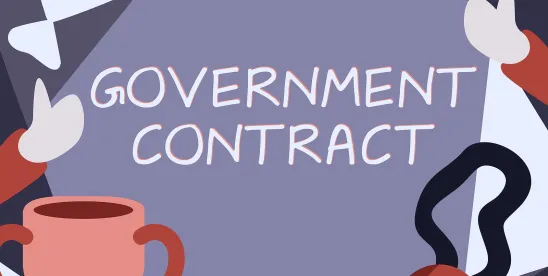When a Federal Circuit panel held that subcontractors had standing to challenge procurement violations, Judge Clevenger warned of a flood. Under the panel’s holding, thousands of subcontractors could inundate the Court of Federal Claims with allegations that agencies had violated applicable procurement laws. Progress on major programs could slow as the Government dealt with a wave of new protest litigants.
On August 28, 2025, the full Federal Circuit reversed course. The Court reaffirmed the long-standing definition of “interested party,” holding that only actual or prospective bidders or offerors with a direct economic interest in the outcome of the procurement may protest.
Background
The case involved a contract awarded by the National Geospatial-Intelligence Agency (“NGA”) under the SAFFIRE program. The contract sought both a data repository and advanced computer vision artificial intelligence (“AI”) tools.
Percipient believed its commercial platform could meet NGA’s needs, but it did not submit a proposal because it lacked the capabilities to perform the repository portion of the solicitation. Instead, it sought to have its product evaluated after award. When those efforts went nowhere, Percipient filed a protest arguing that NGA violated 10 U.S.C. § 3453, which requires agencies to prefer commercial solutions “to the maximum extent practicable.”
The problem: Percipient was never a bidder.
The Federal Circuit’s Holding
By a 7-4 majority, the Federal Circuit ruled that:
- An “interested party” is an actual or prospective bidder/offeror. This longstanding definition applies across all protest grounds, including challenges alleging statutory or regulatory violations.
- Subcontractors, vendors, and other third parties do not qualify—even if they can show the agency violated procurement law.
- Because Percipient never submitted a proposal, and never positioned itself as a prospective bidder, it lacked standing. The Court therefore affirmed the dismissal of Percipient’s protest.
The Court stressed that Congress has repeatedly considered, and rejected, expanding protest standing to subcontractors. When it enacted the Administrative Dispute Resolution Act in 1996, it deliberately carried forward the narrower bidder-focused definition. The majority also recognized that while some parties (i.e., subcontractors) may be left without a direct remedy, this was simply the result of a statutory limitation.
The decision included a dissent, which argued that the majority’s reading was too narrow and that Congress intended to allow a broader range of parties to challenge statutory or regulatory violations. The dissent emphasized that the majority’s approach could leave some statutory violations unreviewable, and proposed that the definition of “interested party” be informed by the context and specific type of challenge brought.
What This Means for Contractors
The lesson is straightforward but critical:
- If you want protest rights, you must be an actual or prospective bidder. Sitting out a procurement—even if you believe the solicitation is flawed—will almost certainly foreclose standing.
- Subcontractors cannot protest. If your business model relies on providing niche technology or services under a prime, you cannot expect to challenge procurement decisions directly at the Court of Federal Claims.
- Strategy matters. Small and emerging technology firms should consider teaming agreements, joint ventures, or other vehicles to participate as a bidder. These strategies help preserve protest rights if the agency misapplies the law.
- Proactive engagement is key. If you believe a solicitation is improperly structured, the safest route is to file a pre-award protest as a prospective bidder.
The Federal Circuit’s decision in Percipient.ai closes the door on subcontractor-driven protests and reaffirms the principle that, if you want the ability to challenge an agency’s procurement decisions, you must position yourself as an actual or prospective bidder.




 />i
/>i
